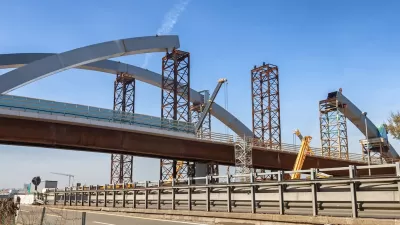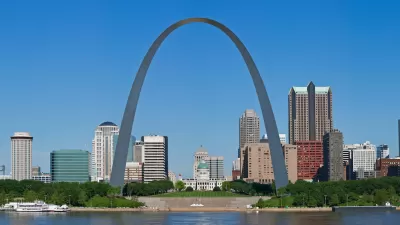A new report prepared to inspire NYC's next mayor examines 15 'game-changing reforms' that have been implemented in cities around the world, and could be adapted to help solve New York's most pressing challenges.
"Over the last six months, researchers at the Center for an Urban Future and NYU Wagner interviewed nearly 200 policy experts in cities across the country and around the globe, looking for game-changing reforms that have proven effective in other cities, that are scalable in New York and that the next mayor could implement. This report, “Innovation and the City [PDF],” presents 15 of the most promising reforms—from San Francisco’s bold plan to establish a $50 college savings account for every kindergartener in public school, to Boston’s pioneering approach to remaking the 311 system for today’s smartphone age and London’s ambitious experiment with crowdfunding for public infrastructure projects."
"This effort—which we have referred to as the Mayoral Policy Lab—aims to invigorate the cycle of innovation and experimentation," say authors Neil Kleiman, Adam Forman, Jae Ko, David Giles and Jonathan Bowles. "Providing a new twist on the election cycle debate, we offer the New York City mayoral candidates a menu of practical policy ideas drawn from the most inspired policies in the most vibrant cities around the country and the world. If cities are our 'laboratories of innovation,' our research provides rigorous policy 'experiments,' offering novel, proven and scalable reforms that can improve, and possibly transform, the city."
"But New York is not the only city that can benefit from this inventory of innovation," they add. "Los Angeles and Minneapolis will be electing new mayors, and municipal leaders everywhere are facing significant challenges. We hope these ideas will inspire innovation throughout the country, in 2014 and beyond."
FULL STORY: INNOVATION AND THE CITY

Manufactured Crisis: Losing the Nation’s Largest Source of Unsubsidized Affordable Housing
Manufactured housing communities have long been an affordable housing option for millions of people living in the U.S., but that affordability is disappearing rapidly. How did we get here?

Americans May Be Stuck — But Why?
Americans are moving a lot less than they once did, and that is a problem. While Yoni Applebaum, in his highly-publicized article Stuck, gets the reasons badly wrong, it's still important to ask: why are we moving so much less than before?

Using Old Oil and Gas Wells for Green Energy Storage
Penn State researchers have found that repurposing abandoned oil and gas wells for geothermal-assisted compressed-air energy storage can boost efficiency, reduce environmental risks, and support clean energy and job transitions.

Greening Oakland’s School Grounds
With help from community partners like the Trust for Public Land, Oakland Unified School District is turning barren, asphalt-covered schoolyards into vibrant, green spaces that support outdoor learning, play, and student well-being.

California Governor Suspends CEQA Reviews for Utilities in Fire Areas
Utility restoration efforts in areas affected by the January wildfires in Los Angeles will be exempt from environmental regulations to speed up the rebuilding of essential infrastructure.

Native American Communities Prepare to Lead on Environmental Stewardship
In the face of federal threats to public lands and conservation efforts, indigenous groups continue to model nature-centered conservation efforts.
Urban Design for Planners 1: Software Tools
This six-course series explores essential urban design concepts using open source software and equips planners with the tools they need to participate fully in the urban design process.
Planning for Universal Design
Learn the tools for implementing Universal Design in planning regulations.
Heyer Gruel & Associates PA
City of Moreno Valley
Institute for Housing and Urban Development Studies (IHS)
City of Grandview
Harvard GSD Executive Education
Salt Lake City
NYU Wagner Graduate School of Public Service
City of Cambridge, Maryland





























